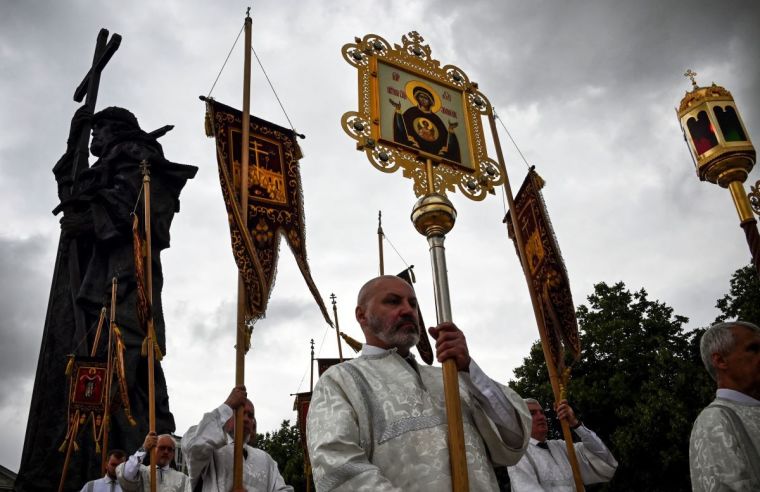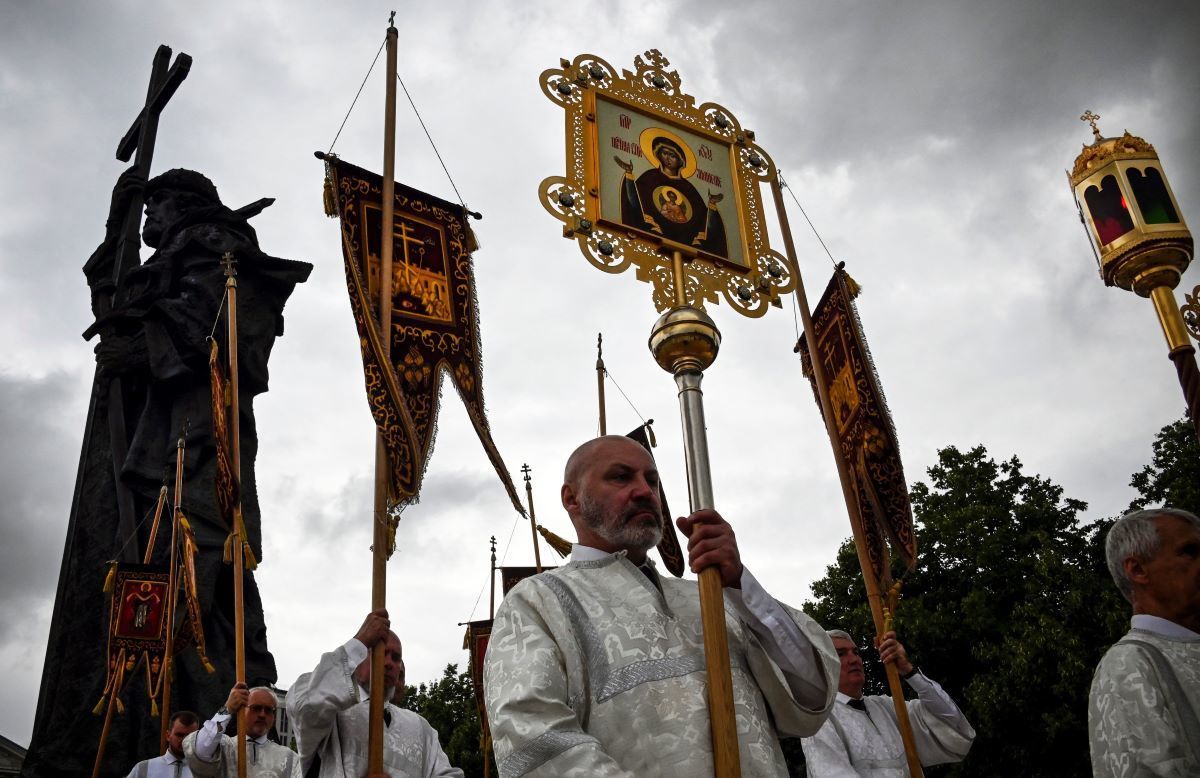
Estonia will not renew the residence permit of Metropolitan Eugene, head of the Estonian Orthodox Church of the Moscow Patriarchate, citing national security concerns.
The decision, announced by the Estonian Interior Ministry, requires Eugene, also known as Valeri Reshetnikov, to leave the country by Feb. 6.
Indrek Aru, head of the border guard bureau of the North Prefecture of the Estonian Police and Border Guard Board, or PPA, stated in a press release that Reshetnikov’s public actions and statements supporting the aggressor, presumably Russia, led to this decision, Estonian public broadcaster ERR reported.
Despite warnings, Reshetnikov continued activities deemed incompatible with Estonia’s values and legal environment, prompting the PPA to view his actions as a security threat.
The Ministry of the Interior repeatedly advised Reshetnikov to cease justifying the Kremlin regime and Russia’s military actions. However, his unaltered conduct, especially in light of Estonia’s declaration of Russia as a terrorist state following the full-scale war in Ukraine, has raised concerns.
Reshetnikov has been in Estonia for four years, with his last residence permit renewal occurring two years ago, just before Russia’s full-scale aggression in Ukraine. The decision not to renew his permit is based solely on his behavior and does not impact the Estonian Orthodox Church of the Moscow Patriarchate or its followers, Aru said.
The Estonian Internal Security Service contributed to this decision, noting that Patriarch Kirill of Moscow, head of the Russian Orthodox Church, has consistently supported the Kremlin’s aggression against Ukraine. The ISS views the actions of the Moscow patriarch and Metropolitan Eugene as aiding Russia’s security policy in Estonia.
This move by Estonia is part of a broader trend in Eastern Europe, where countries are scrutinizing religious groups with ties to Russia amid its nearly two-year war in Ukraine.
In Ukraine, lawmakers have advanced legislation targeting religious organizations linked to Russia, particularly the Ukrainian Orthodox Church, which is distinct from the Orthodox Church of Ukraine. The UOC, having severed ties with the Russian Orthodox Church last year, faces potential bans under new laws aimed at protecting national security.
The Ukrainian Verkhovna Rada’s legislation prohibits activities of religious groups affiliated with external influence centers in states engaged in armed aggression against Ukraine. This bill, supported by 267 lawmakers on the first vote in October, awaits further voting and presidential approval.
Iryna Herashchenko, a lawmaker from the European Solidarity Party, described the vote as historic, emphasizing the need to protect national security from entities perceived as extensions of foreign security services, specifically the Russian FSB.
The Ukrainian government has accused the UOC of promoting pro-Russian propaganda, leading to raids and evictions of UOC properties and the alleged discovery of materials supporting the Russian invasion.
Patriarch Kirill of the Russian Orthodox Church condemned the Ukrainian legislation, arguing that it aligns the Ukrainian state with oppressive regimes of the past. He criticized the bill’s targeting of the UOC, which he views as an attack on a significant religious community in Ukraine.
Since the Russian invasion of Ukraine in February 2022, the Ukrainian government has intensified its stance against the UOC. The church officially severed ties with the Moscow Patriarchate in May 2022, denouncing the war. Ukrainian President Volodymyr Zelenskyy has supported proposals to ban the UOC, framing it as a measure to strengthen Ukraine’s internal security and resistance against Russian influence.
Free Religious Freedom Updates
Join thousands of others to get the FREEDOM POST newsletter for free, sent twice a week from The Christian Post.




























![[Video] More – Aghogho » GospelHotspot](https://gospelhotspot.net/wp-content/uploads/2024/04/More-Aghogho.jpeg)
















